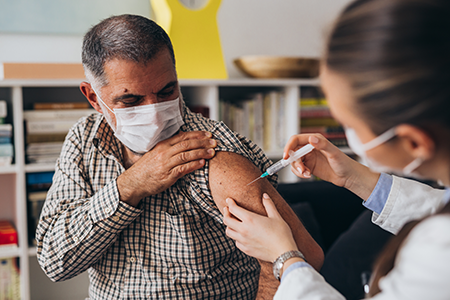Preventive Health Schedule

Individuals with no underlying medical conditions may wish to consider the following preventive health-screening schedule. Your schedule may change based on risk factors and family history. Have a discussion with your physician to learn what your exact preventive schedule should look like. Visit the CDC for more information on preventive health.

General Testing
Routine Physical
Once a year; should include blood pressure screening, weight check/BMI screening, skin cancer screening, depression screening, and drug/alcohol/tobacco use assessment.
Colonoscopy
Every 10 years, beginning at age 45 unless instructed otherwise by your primary care provider.
Cholesterol Screening
Every 5 years after age 20, unless instructed otherwise by your primary care provider.
Lung Cancer Screening
Ages 55-80: If you have a smoking history within the past 15 years. Once a year if you currently smoke.
Hepatitis C Screening
Once in a lifetime after age 18.
Skin Cancer Screening
Individuals at an increased risk for skin cancer should regularly do a self-examination of their skin and notify their primary care provider if moles change. High-risk individuals are white males over 50, individuals with a history of significant sunburn or multiple moles.

Vaccines
“Booster” immunizations can protect both adult men and women against tetanus, diphtheria, and whooping cough. Individuals who are 65+ years should receive vaccines as instructed by their primary care provider.
Covid-19
Primary care providers are up-to-date on CDC recommendations regarding COVID-19 vaccines and boosters for all age groups. An individual should have a discussion with their primary care provider about what is most appropriate for their health care needs.
Flu Shot
Individuals should receive a flu shot once a year.
Shingles
Shingrix: Age 50 or older, regardless of previous herpes zoster or Zostavax.
Tetanus Booster
Every 10 years.
Pneumonia Vaccine
High-risk population may require vaccine before the age of 65.
Age 65+: One or two doses in a lifetime.

Men
Prostate Cancer Screening
Age 50: For men of average risk, have a discussion with your primary care provider to determine what screening is best suited to you.
Age 45: Men of high risk, African American men who have a parent, brother, or child who was diagnosed with prostate cancer before age 65.
Age 40: Men at even higher risk due to having more than one first-degree relative who was diagnosed with prostate cancer before the age of 65.

Women
Pelvic & Breast Exam
Age 40+: Once a year, starting with annual visits.
Mammogram
Women who have risk factors may start screening at a younger age. Please discuss with your primary care provider.
Age 45-54: Once a year.
Age 55+: Once every one to two years.
Bone Density Screening
Once at age 65, unless instructed otherwise by your primary care provider.
Pap Smear
The frequency of cervical cancer screening and which tests you should have depend on your age and health history.
Women aged 21-29 should have a Pap test every 3 years. HPV testing is not recommended.
Women aged 30-65 should have a Pap test and HPV test (co-testing) every 5 years (preferred). It also is acceptable to have a Pap test every 3 years.

References
American Cancer Society. (2021, April 22). Guidelines for the prevention and early detection of cervical cancer. Retrieved March 15, 2023, from https://www.cancer.org/cancer/cervical-cancer/detection-diagnosis-staging/cervical-cancer-screening-guidelines.html
American Cancer Society. (n.d.). Lung cancer screening guidelines. Retrieved March 15, 2023, from https://www.cancer.org/health-care-professionals/american-cancer-society-prevention-early-detection-guidelines/lung-cancer-screening-guidelines.html
American Cancer Society. (2022, January 14). Recommendations for the early detection of breast cancer. Retrieved March 15, 2023, from https://www.cancer.org/cancer/breast-cancer/screening-tests-and-early-detection/american-cancer-society-recommendations-for-the-early-detection-of-breast-cancer.html
American Cancer Society. (2019, August 1). Recommendations for prostate cancer early detection. Retrieved March 15, 2023, from https://www.cancer.org/cancer/prostate-cancer/detection-diagnosis-staging/acs-recommendations.html
American Cancer Society Medical Content and News Staff. (2021, February 4). When should you start getting screened for colorectal cancer? Retrieved March 15, 2023, from https://www.cancer.org/latest-news/american-cancer-society-updates-colorectal-cancer-screening-guideline.html
Viera, A. J. (Updated 2023, March 16). Overview of preventive care in adults. UpToDate. Retrieved March 28, 2023, from https://www.uptodate.com/contents/overview-of-preventive-care-in-adults/print?search=preventative%20screenings%20&source=search_result&selectedTitle=1~150&usage_type=default&display_rank=1
Download the Free Resource
Access a printer-friendly version of the resource to reference later.